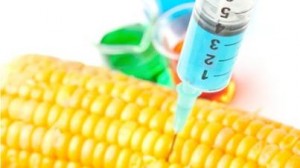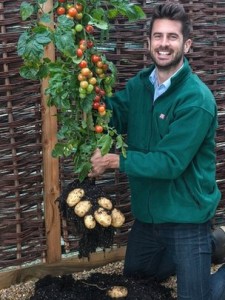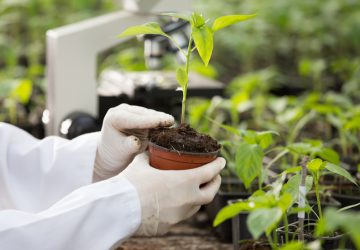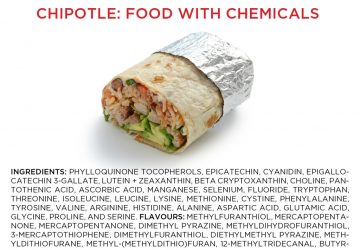A common refrain of anti-biotechnology campaigners is that the method will create strange “Frankenfoods” that will be bizarre if not harmful. Anti-genetic modification propaganda shows syringes injecting serum into ears of corn, and who knows where that might lead:
Their propaganda has insinuated that genetic modification might lead to strange apple-orange hybrids:
Perhaps science will generate true chimeras, with properties of multiple foods. Take a look at this horrifying possibility, humorously called a “TomTato” that mixes tomatoes and potatoes:
Except, that actually exists—and it wasn’t produced by biotechnology. Instead, a British horticultural firm grafted potato roots onto a tomato plant. It’s a common technique—perhaps most famously, grafting saved the French wine industry in the late 1800s. So much for “Frankenfood.”
But this should remind us that despite all the furor and brouhaha over biotechnology, the method is just the most scientific in a ten thousand-year history of human manipulation of plant biology. Those “organic heirloom tomatoes” the activists rave about didn’t exist in nature. They are productions of man, who haphazardly over decades changed them by selective breeding, grafting, and other methods. And when it comes to safety, reputable scientists agree that (just like grafting and selective breeding) there isn’t any reason to believe biotechnology is unsafe.







